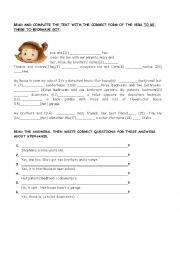
|
TO BE, THERE TO BE, HAVE(GOT)
Gap filling exercise
Making questions for given answers.
Level: elementary
Age: 9-100
Type: worksheet
Downloads: 16
|
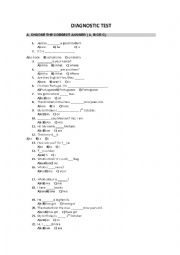
|
diagnostic test
Level: elementary
Age: 10-12
Type: worksheet
Downloads: 16
|
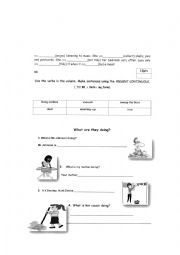
|
Present continuous
This the 3rd part of the test which Reading comprehension is : " Eating habits- Healthy or unhealthy?"
Level: elementary
Age: 9-100
Type: worksheet
Downloads: 4
|
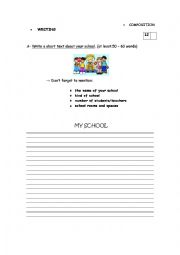
|
written test part 3
Checking the knowledege about prepostions of place/time and elementar question words
Level: elementary
Age: 10-12
Type: worksheet
Downloads: 3
|
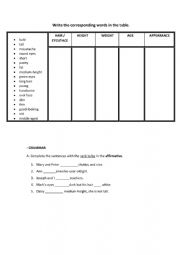
|
Homework ( People�s description/ to be/ have got)
grammar practice on to be and have got- presente simple.
Writing practice on people�s description and clothes.
Level: elementary
Age: 10-100
Type:
Downloads: 11
|
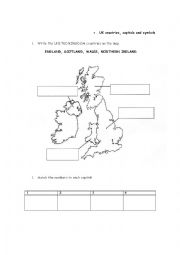
|
UK- countries, capitals and symbols
Introductory worksheet for basic information about Uk:
- countries
- capitals
- symbols
Level: elementary
Age: 9-100
Type: worksheet
Downloads: 13
|
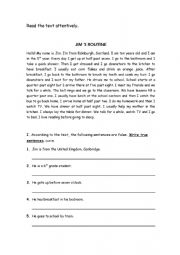
|
The Simple Present Test
Reading comprehension on daily routine
composition about the three parts of one�s daily activities: In the morning, in the afternoon and in the evening.
Level: elementary
Age: 10-100
Type: worksheet
Downloads: 41
|
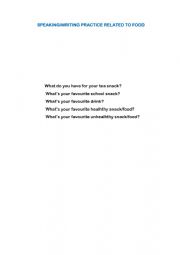
|
speaking/writing activity about food
oral practice on food vocabulary.
Level: elementary
Age: 9-100
Type:
Downloads: 4
|
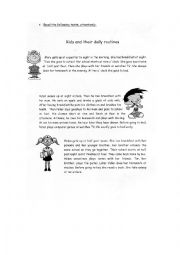
|
READING COMPREHENSION - 1ST PART
The text for Reading about routines
Level: elementary
Age: 9-100
Type: reading
Downloads: 14
|
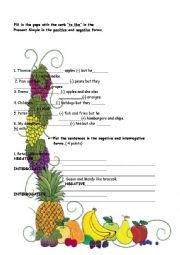
|
FOOD 2
THIS CONTRIBUTION CAN THE 2ND PART OF THE READING COMPREHENSION ABOUT FOOD OR IT CAN BE SOLVED INDIVIDUALY. THE TEACHER AND STUDENTS CAN TEST WHAT THEY�VE LKEARNED ABOUT PRESENT SIMPLE: AFFIRMATIVE, NEGATIVE AND INTERROGATIVE. IT IS PRACTICED THE FOOD ITEMS AND THE VERB TO LIKE. IT�S IDEAL TO START TEACHING THE PRESENT SIMPLE TO BEGINNER LEVELS.
Level: elementary
Age: 11-100
Type: worksheet
Downloads: 7
|